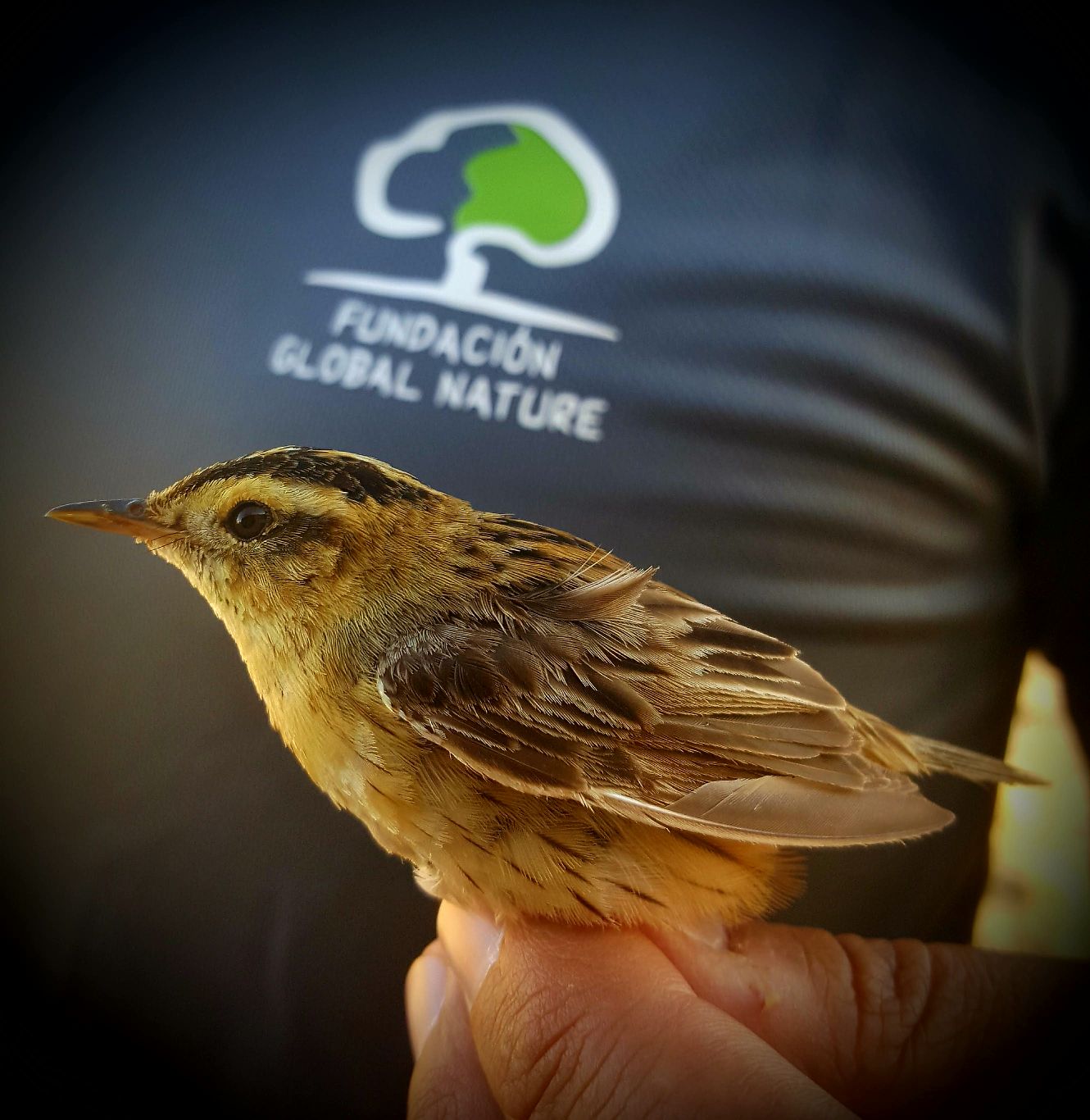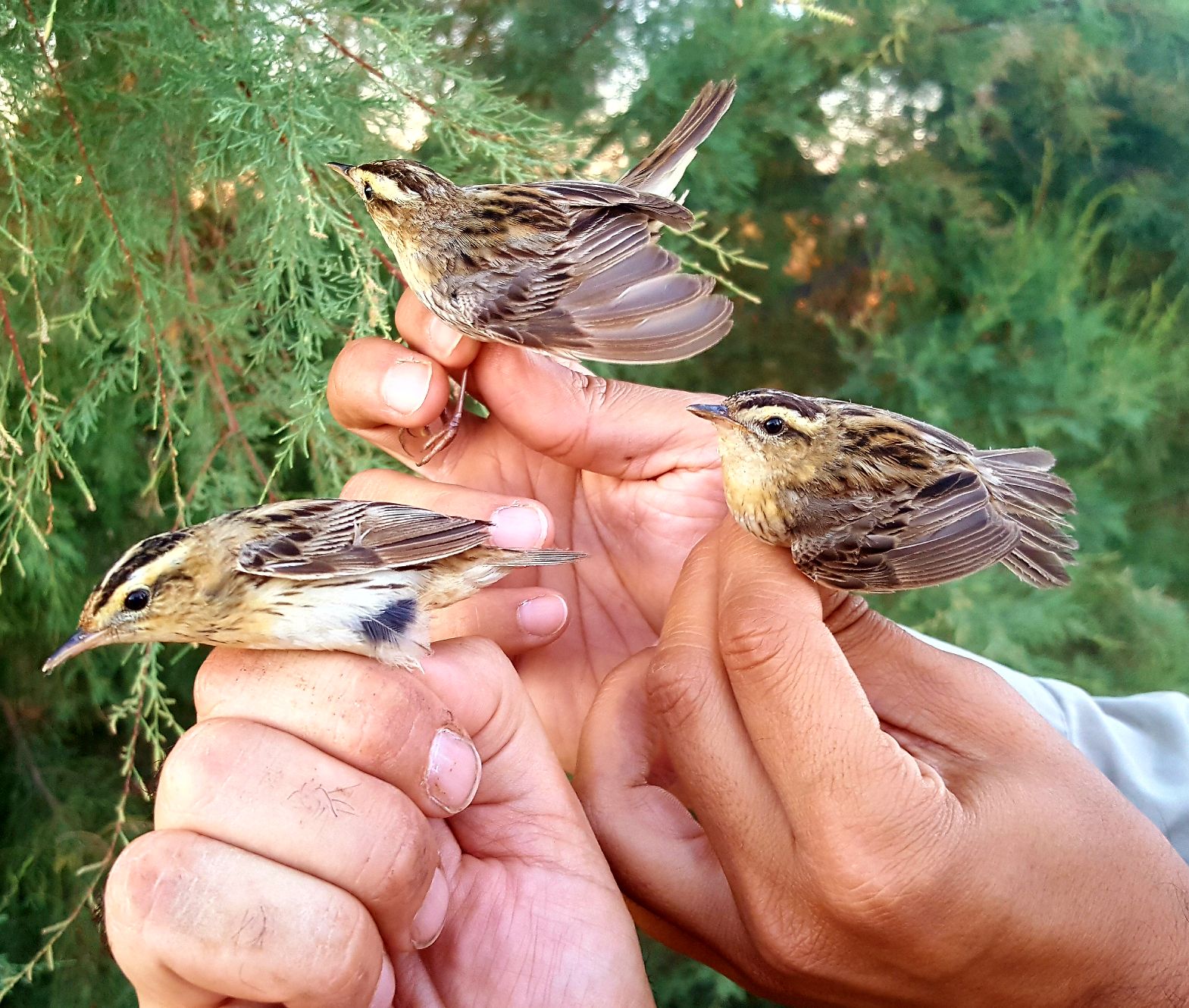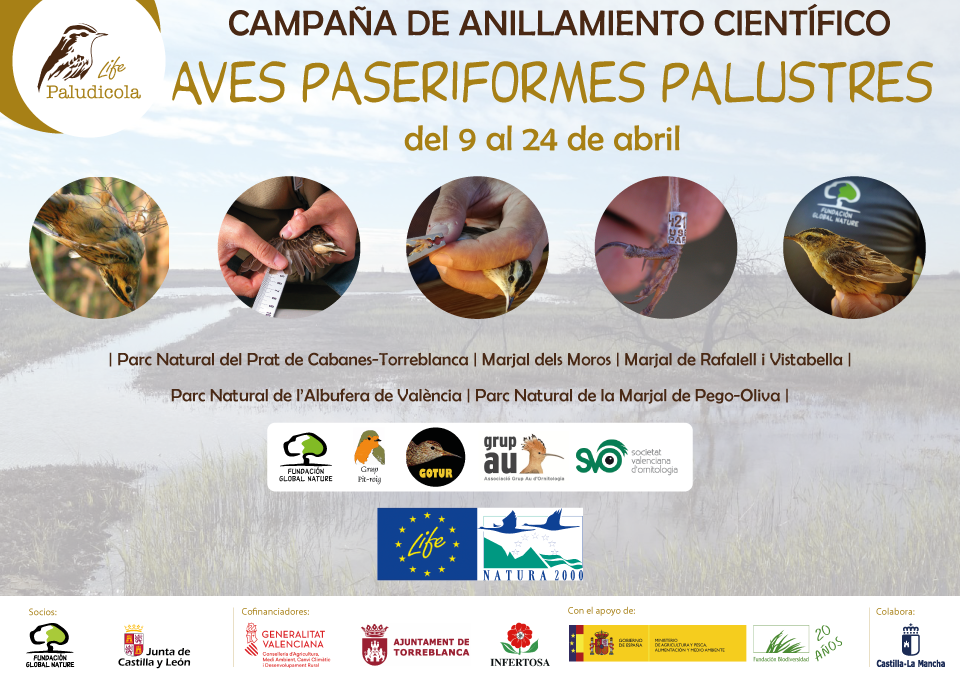At Fundación Global Nature we are coordinating a scientific ringing campaign for migratory marshland passerines on the various natural spaces within the region of Valencia, from 9 to 24 April, to coincide with the peak spring migration period for these birds. This activity, conducted for the first time at four of the Valencian wetlands for 16 consecutive days, forms part of the monitoring tasks envisaged in the LIFE Paludicola project, a European initiative in nine wetlands in the Natura 2000 Network on the Iberian Peninsula with a duration of three years.

Fotografía de carricerín cejudo capturado en la campaña de anillamiento de agosto de 2017 en la Laguna de la Nava, Palencia
During this ringing campaign, special attention will be paid to monitoring the aquatic warbler (Acrocephalus paludicola), a species subject to priority conservation, catalogued as Vulnerable worldwide and classified as Endangered at a European level. This small bird, threatened worldwide, finds in the wetlands of the Spanish Levantine coast one of the few known enclaves on its migration from wintering grounds in Senegal and Mali, in Africa, to its breeding grounds in Byelorussia, Poland and Ukraine.
Registered aquatic warbler sightings on the Levante wetlands are scarce, but earlier studies ratify the passage of this species over different wetlands on their migrations. Good conservation conditions at wetlands such as the marshes at Pego-Oliva or Prat de Cabanes-Torreblanca are fundamental for birds to stopover and feed, recovering the energy they need to reach their breeding grounds, and certify the important role of protected natural spaces during birds’ migratory flights.

Fotografía de 3 ejemplares de carricerín cejudo capturados en la campaña de anillamiento de agosto de 2017 en la Laguna de la Nava, Palencia
Another major aim of the ringing campaign is to conduct a study of the largest possible number of migratory bird species to gather information on the repercussions of climate on migration, the number and physical condition of individuals, biometrics, and the points of origin and destination of these migrations. Together, this data will allow us to enlarge our knowledge of the migratory strategies deployed by the captured birds.
Ringing activities will be conducted at several Valencian wetlands: Parc Natural del Prat de Cabanes-Torreblanca (LIC-ZEPA); Marjal del Moro (ZEC-ZEPA); Parc Natural de l’Albufera (LIC-ZEPA), and Parc Natural de la Marjal de Pego-Oliva (ZEC-ZEPA). These ringing activities will be carried out by local groups who regularly work on the wetlands (Grupo Au, GORTUR and Grupo Pit Roig), under the coordination of Fundación Global Nature. The Valencian Ornithological Society (SVO) has also requested to participate in the campaign, and in this first year will join the initiative for 7 days of sampling on the marsh at Rafalell i Vistabella, increasing the sampling areas from four to five and thus complying with one of the project’s objectives, namely to establish the maximum number possible of sampling areas.

 Español
Español
